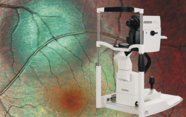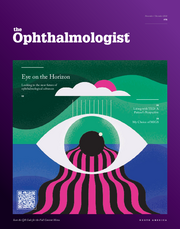Pioneer or Buccaneer?
Great minds across the ages have struggled to make their work understood. In the digital age, are we doing enough to push truly pioneering efforts to the forefront?
I was lost in a great read the other day: “The Butchering Art” by Lindsey Fitzharris. I asked my staff if anyone had read it – they hadn’t and couldn’t believe a book like that even existed. I explained that it was all about medicine in the early 1800s – before people thought microbes caused disease. Believe it or not, the conversation around infection is still relevant today. Postoperative infection prevention is, and always will be, a number one priority with any type of surgery. Patients don’t want to be hurt as a result of a procedure – not least one you performed.
Which brings me nicely to the point of this article. In 2018, what is the difference between a pioneer and a buccaneer? Technically, a pioneer is defined by Webster as, “a person or group that originates or helps open up a new line of thought or activity” (3). A buccaneer is, “any freebooter preying on Spanish and English ships and settlements, especially in the 17th and 18th century” (4). These guys and girls got out of prison and moved to the Islands. When... they got bored of sipping piña coladas, they decided to take a bold move forward – commandeer a boat and rob the Spanish and English oppressing them. That’s what the pirates of the 17th and 18th century are known for, and why the modern definition of a buccaneer is “an unscrupulous adventurer especially in politics or business.”
With that in mind, let’s go back to the 19th century. It was here that one of the most famous doctors of the decade performed an amputation in under three minutes without anesthesia. That’s pretty amazing in itself – until you remember that the technician helping, the medical student watching, and the patient all died. With 300 percent mortality in one procedure, fast isn’t always better. It may be more cost efficient, but does it help the patient?
Fast forward to the early 20th century when a guy called Eddington wanted to prove that another guy called Einstein was a genius. The problem? Everyone was at war. Instead of working on the theory of relativity, scientists were figuring out how to kill soldiers with mustard gas. Eddington decided to go to Africa and prove that Einstein was right, which he did. Immediately, Einstein was hailed a hero back home. In doing so, Eddington proved that the buccaneer was really a pioneer.
In terms of ophthalmology, people like Harold Ridley and Charles Kelman changed the surgical world as we know it, but were hammered by mainstream ophthalmologists of the day. Now, let’s think of the modern ophthalmologist. She has a great idea, but how that idea develops is dependent on where she lives in the world. If it involves embryologic tissue, religion may jump in. If the cost-to-goods are high, private equity jumps in. If she needs to run an investigative review-board sponsored device exemption trial as a surgeon, cost and liability come in to play. Those are just some of the inhibitors to really great ideas today. The old guard hate transition and the new guard embrace it. As the world becomes flatter, we see across the planet in a femtosecond (5). We can think of the ‘new’ world as a big web with thoughts being shared instantly by Googling this or that, but the exchange of ideas is occurring at a phenomenal rate.
In 2018, we are looking at an explosion of technology to treat dysfunctional lens syndrome – or “I can’t see what I want to without glasses or contact lenses” syndrome. Who is the buccaneer and the pioneer of today? How would Webster define it if he were still alive? The definition could be legal, technical or geographical. We have companies that finally get Food and Drug Administration approval but have ended up bankrupt, while other companies fall out of the running because of a lack of venture capital. Where’s the middle ground between protecting patients from adversity – the buccaneer – and providing patients with sight they want – the pioneer? And how can we make it affordable? That is the million or 100-million-dollar question – because that’s roughly what it costs for a company to participate in an investigator device exemption for an indication for surgery in the US today.
For the most part, Einstein, Ridley, Kelman, and the surgeon today want people to have a better existence. Doctors do what they do to make people better – the money is just a necessary evil. Remember, in the early 19th century, many surgeons weren’t even paid. So what are the hurdles to enlightenment today? How do we create a better world? How do we define the pioneer and the buccaneer? Only time can tell.
- L Fitzharris, “The Butchering Art”, Scientific American: October 17, 2017. ISBN: 9780374117290
- A Isaacson et al, “3D bioprinting of a corneal stroma equivalent. Experimental Eye Research”, Exp Eye Res, 173, 188-193 (2018). PMID: 29772228
- www.merriam-webster.com/dictionary/pioneer
- www.merriam-webster.com/dictionary/buccaneer
- T Friedman, “The World is Flat: A Brief History of the Twenty-First Century”, Farrar, Straus and Giroux: April 5, 2005. ISBN: 1593
Karl Stonecipher is Medical Director of TLC Greensboro, North Carolina, USA













